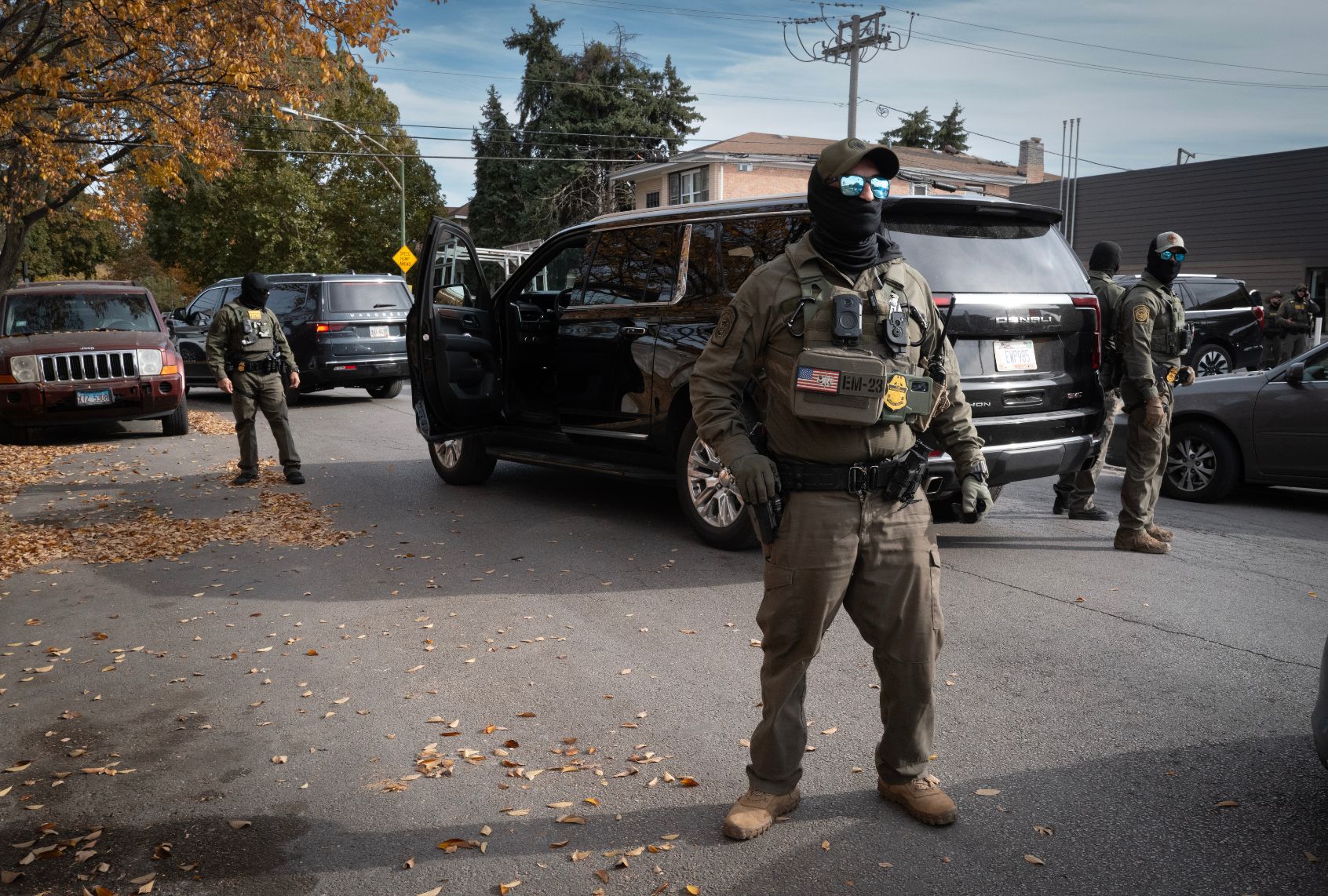On November 5, 2023, an incident at Rayito de Sol Spanish Immersion Early Learning Center in Chicago’s Roscoe Village neighborhood turned a typical morning into a scene of chaos and fear. Adam Gonzalez, a parent and lawyer, arrived to drop off his 17-month-old son when he encountered an alarming situation outside the day care. The presence of unmarked cars and armed men wearing black body armor quickly transformed his routine into a traumatic experience.
As Gonzalez approached the center, he realized the men were agents from Immigration and Customs Enforcement (ICE). He instinctively knew to record the unfolding event without getting too close, especially with his child present. The situation escalated as he witnessed the day care teacher, Diana Patricia Santillana Galeano, being forcibly removed by ICE agents in front of children, parents, and staff. “I heard her yelling ‘tengo papeles,’ which means ‘I have papers,’” Gonzalez recounted. “You heard parents yelling, ‘leave her alone,’ you heard staff yelling, ‘she has papers.’”
The incident left an indelible mark on the community. Gonzalez described the emotional fallout, saying, “It was beyond traumatic. It’s been less than a week, but I still have moments where I relive what I saw, and I can hear the crying.” Parents and children alike grappled with the shock of witnessing such an aggressive action in a place typically associated with safety and comfort.
The U.S. Department of Homeland Security responded in a press release, stating that ICE does not target schools or day care centers. Assistant Secretary Tricia McLaughlin asserted that the arrest occurred in a vestibule, not inside the school itself. Despite this clarification, the fear induced by the raid continues to resonate within the community.
The emotional impact on children has been profound. Alice Dreyden, an employee at a nearby Head Start center, noted that the presence of ICE has led to families feeling unsafe, prompting some to withdraw their children from day care altogether. “One of my toddlers, a 15-month-old, who I got really close with, just stopped showing up one day,” Dreyden said. After reaching out, she learned that the family had returned to their country due to fears surrounding ICE enforcement.
Dreyden detailed how children pick up on the anxiety surrounding them. She remarked, “Kids may not understand the details, but they absolutely understand that the adults are afraid and things aren’t safe.” This environment can be damaging to young children’s development. The National Child Traumatic Stress Network emphasizes that exposure to frightening events, such as witnessing a parent being detained, can have lasting effects.
Psychologist Dr. Carla Marie Manly reinforced the significance of early childhood experiences, stating that exposure to aggressive or fear-inducing events can fundamentally alter a child’s perception of safety. “When a violent event occurs in school or other ‘safe’ settings, the child comes to equate that once-safe space with fear, anxiety, and instability,” she explained.
In light of the trauma experienced by families, Gonzalez has yet to return his son to the day care. He noted that parents across Chicago, particularly within the Latino community, face a difficult choice: “Do I go to work so I can feed my child, or do I stay at home and know I’m safe? Or do I send my child to school that day and worry ICE will be outside the school?”
The implications of this incident extend beyond individual families, affecting the broader community’s sense of security and stability. As the situation develops, the long-term effects on children and families in the area remain a pressing concern.






































































